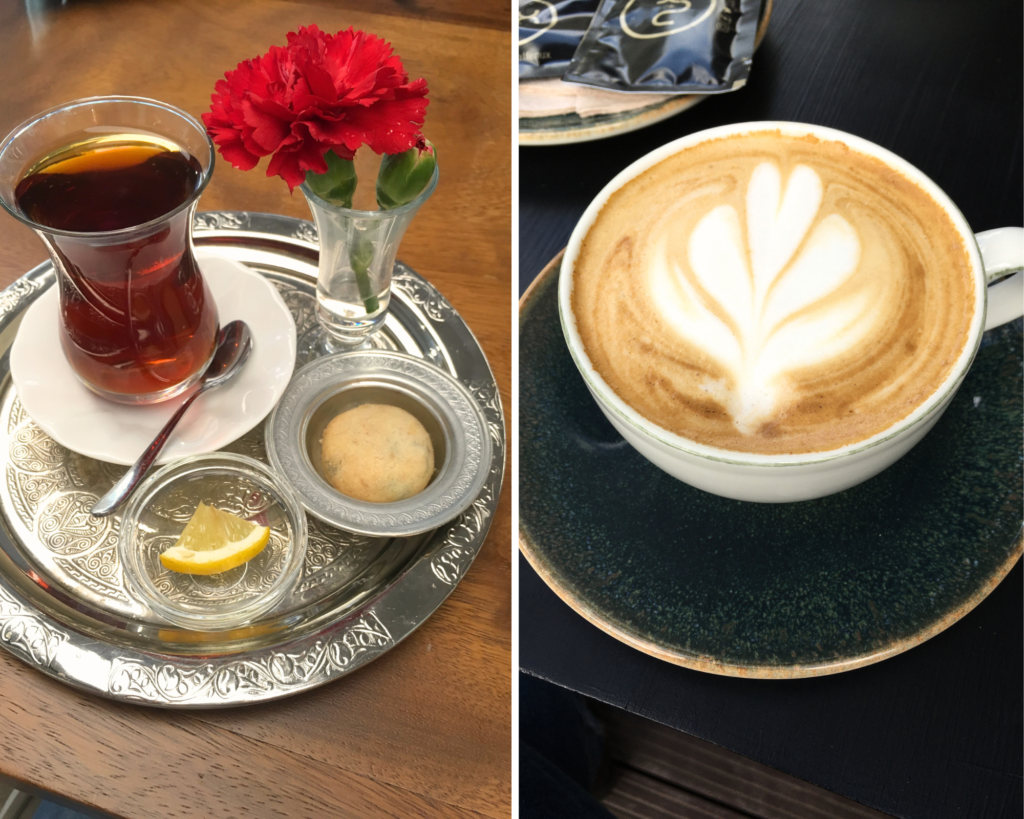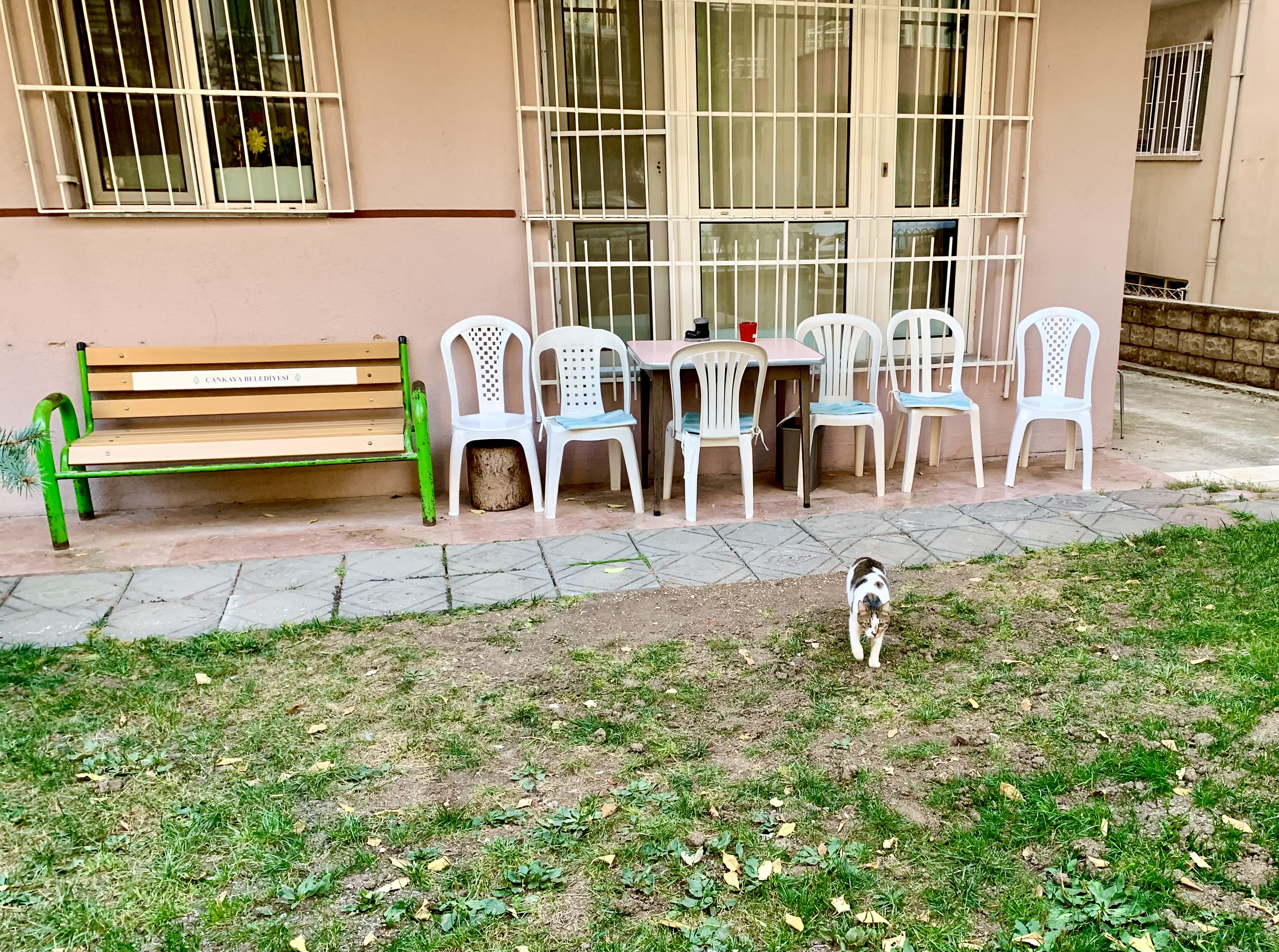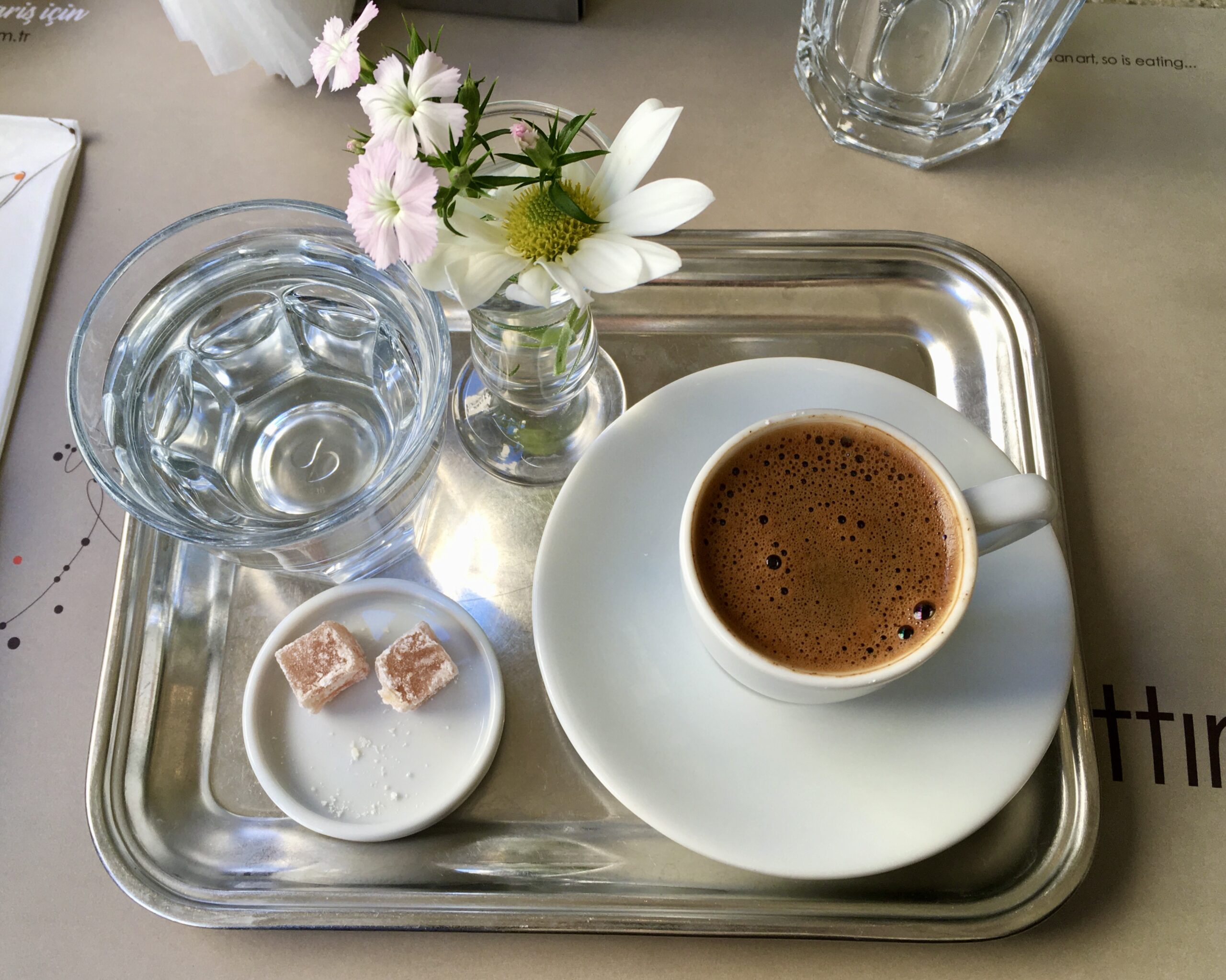It stood on the corner of two busy streets. Next to a petrol station, opposite a taxi rank and close to a number of offices. Crowds of people walked past it every day. Yet, the coffee stand didn’t last even a few months. I haven’t spoken to the owners, so I’m not 100 percent certain of its failure, but I have an almost 99 percent idea why the concept, popular from many other countries, failed in Turkey. After all, Turks need to sit for their coffee. And talk. And ideally also smoke.
Coffee is supposed to be drunk sitting down
The economic crisis in Turkey has been palpable for several years now. Everyone can feel it. Yet you probably wouldn’t recognise it at first glance. Especially when you walk through the wider centre of the capital, full of restaurants, cafes, pubs and bars. And one place after another is almost bursting at the seams. You can’t get into the more popular venues, be it the renowned meyhane or student bars, without a reservation or a queue. Even on a Monday night. Where’s the crisis that’s filling the front pages? It’s here, it’s with us, just not in these establishments. Socializing is so much a part of Turkish culture that even in times of crisis, it’s something they don’t deny themselves.
Turks may go to restaurants and cafes a little less than they used to, but that doesn’t mean they take coffee to go instead. On the streets of Turkey (as opposed to the streets of the US, or maybe even Prague?) you will hardly see a person with a paper (or reusable) cup of coffee in their hand. Unless they are standing in front of an office building smoking a cigarette on their lunch break. But marching down the street with a hot drink? No way.

At the moment when Turks are leaving pubs and restaurants because of rising prices, they do not automatically isolate themselves in their homes. They do stay in their homes, but not alone – they invite visitors into them. Instead of sharing a kebab in a restaurant, they enjoy home-made Turkish cuisine. Instead of beer in a pub, they meet up with bottled beers in the park (with their own camping chairs, of course, which are an essential part of Turkish outdoor culture).
The same goes for coffee (or more often tea). If you ever wander through Turkish streets (except the very touristy ones, but even there) notice that almost every building has at least two chairs and a small table in front of it. It’s where colleagues sit on their work break, neighbors in front of the building, customers with shopkeepers, and not to forget the street cats. Turks, including street animals, just plain and simple like to socialize often.

Stop and take your time
When you get a hot drink in your hand in Turkey, it means to stop for a moment and take your time. The complete opposite of being served coffee to go in the West, where you rush to work, school, the metro… In Turkey, they say that sitting and talking is more important than the drink itself. Interpersonal relationships and personal contact are very important here, and for many Turks drinking coffee or tea is not just a daily habit, but a social ritual.
So when you’re offered coffee or tea in Turkey, know that it’s mainly an invitation to stop and enjoy a moment of relaxation, when you’re not distracted by time or other obligations. And if you’re worried you’re going to daydream for too long, the honking of the ubiquitous traffic is guaranteed to snap you out of your reverie. Because unlike in cafes, on the roads the Turks are in a full rush.
